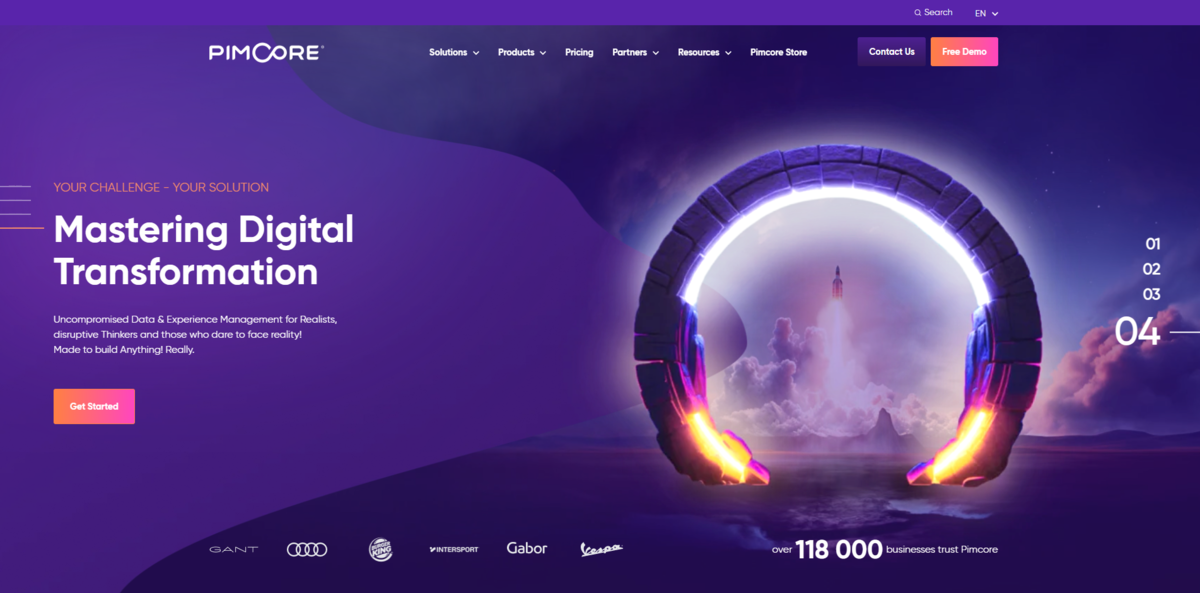Creating a website is one of the most critical steps in establishing an online presence, but if your site isn’t optimized for search engines, it may never reach its intended audience. Many business owners, bloggers, and entrepreneurs invest in a website only to find that their site doesn’t appear in Google search results. This happens when the best website builder for SEO they choose lacks essential SEO capabilities.
SEO (Search Engine Optimization) is the process of improving a website’s visibility in the best search engines like Google, Bing, and Yahoo. The better your site ranks in search results, the more organic traffic, leads, and conversions you’ll generate.
However, not all website builders are designed with SEO in mind. Some limit your ability to customize metadata, URL structures, and schema markup, while others lack the speed and performance necessary for ranking well.
A high-quality SEO-friendly website builder should provide fast loading times, mobile responsiveness, structured data support, and easy integration with SEO tools.
In this guide, we will explore:
-
5 Best Website Builders for SEO
-
What Makes a Website Builder SEO-Friendly?
-
Why Does an SEO-Friendly Website Builder Matter?
-
Key feature of website builders
-
Common mistakes to avoid when selecting a website builder
5 Best Website Builder for SEO
With numerous website builders available, selecting the best website platforms for SEO can be overwhelming. Below, we will review the best web builder for SEO capabilities, ease of use, customization, and overall ranking potential.
1. WordPress

WordPress is widely regarded as the most SEO-friendly website builder. It offers:
-
Full control over SEO elements, including meta descriptions, alt text, and structured URLs.
-
Thousands of SEO plugins like Yoast SEO, Rank Math, and All in One SEO.
-
Customizable permalinks, canonical tags, and schema markup support.
-
SEO-optimized themes and fast-loading designs.
-
Built-in blog capabilities make it ideal for content marketing service.
WordPress is a standout SEO website builder. This flexibility makes it ideal for those wanting to create the best web platform for SEO.
2. Shopify

If you’re running an e-commerce store, Shopify is an excellent choice for SEO. Key features include:
-
Fast-loading pages, ensuring better Google rankings.
-
Mobile-optimized templates designed for high conversion rates.
-
Built-in structured data markup for product pages.
-
SEO-friendly URL structures for better indexing.
Shopify also integrates with Google Merchant Center, allowing businesses to list their products directly on Google Shopping, further enhancing visibility.
Drive More Sales with Expert E-commerce Marketing
3. Wix

Wix is a great choice for beginners due to its user-friendly interface and built-in SEO tools. It offers:
-
AI-driven SEO assistance through Wix SEO Wiz.
-
Customizable title tags, URLs, and meta descriptions.
-
Mobile-optimized templates that ensure a smooth browsing experience.
-
Built-in SSL security and automatic sitemap generation.
-
Integration with Google Search Console for search performance monitoring.
While Wix is not as advanced as WordPress, it is an excellent website builder and SEO integration option for small businesses, startups, and bloggers.
4. Webflow

Webflow is a professional-grade website builder that allows complete SEO customization without requiring coding knowledge. Features include:
-
SEO-friendly clean code, improving Google indexing.
-
Advanced meta tag and schema markup customization.
-
Lightning-fast performance with a built-in CDN.
-
Customizable 301 redirects and canonical tags.
-
Integration with Google Search Console & Google Analytics.
Webflow stands as one of the best web builders for SEO. Its lightning-fast performance and built-in CDN support make it an excellent choice for those seeking high SEO control.
5. PimCore

Pimcore is a powerful, open-source digital experience platform, widely used by enterprises to manage web content, digital assets, and customer experiences. It offers:
-
Full control over SEO elements, including meta descriptions, alt text, and custom URLs.
-
Advanced data management features for better content organization and search engine indexing.
-
Integrated content and digital asset management for seamless SEO optimization.
-
Flexible URL structures, automatic canonical tags, and schema markup support.
-
Full API access for developers to implement custom SEO strategies.
-
Fast-loading performance and scalable solutions for large, complex websites.
If you're looking for a highly customizable, a best website builder for SEO is crucial for ensuring long-term success. At Centric, we specialize in providing top-tier SEO strategy and website optimization solutions. Whether you need a custom SEO website builder or a platform that integrates SEO tools, we can guide you through the best options.
Let's Build a Website With PimCore Service
Why Does an SEO-Friendly Website Builder Matter?
A SEO-friendly website builder lays the foundation for how search engines discover, index, and rank your website. Without proper SEO tools and features, even the most visually appealing site may struggle to attract organic traffic.
The best site builder for SEO ensures that essential elements such as page speed, mobile optimization, and metadata customization are prioritized, making your site more visible in search results.
Because search engines prioritize user experience, fast-loading pages, mobile-friendliness, and structured content, all of which should be supported by your website builder.
Let’s break down the key features that make a website builder SEO-friendly and why they’re crucial for search rankings.
1. Fast Page Speed and Performance
One of the top-ranking factors for Google is page speed. If your website loads slowly, visitors are more likely to leave, increasing your bounce rate and lowering your rankings. Additionally, slow websites provide a poor user experience, leading to fewer conversions and lower engagement.
A SEO-friendly website builder should include:
-
Lightweight Themes & Clean Code – Bloated code slows down a website. The best website builders prioritize minimalistic design with optimized CSS and JavaScript for better speed.
-
Built-In Caching – Caching helps store data temporarily so the website loads faster on repeat visits.
-
CDN (Content Delivery Network) Support – A CDN distributes website content across multiple servers worldwide, reducing load times for visitors regardless of location.
-
Optimized Image Compression – Large images slow down websites. SEO-friendly website builders automatically compress images without losing quality.
How to Check Your Website Speed?
Use tools like:
-
Google PageSpeed Insights – Analyzes and scores your page speed.
-
GTmetrix – Provides insights into what’s slowing down your site.
-
Pingdom – Checks load times from different global locations.
Choosing a website builder with built-in speed optimization ensures your site loads quickly and improves search rankings.
2. Mobile Optimization and Responsive Design
Google’s mobile-first indexing means it primarily evaluates your site’s mobile version for ranking. A mobile-friendly website builder is essential for SEO campaign success, ensuring users have a seamless experience across different devices.
The best site builder for SEO should also include mobile-friendly navigation and AMP support, which are important ranking factors for search engines. Websites that are optimized for mobile are likely to rank better in Google’s mobile-first index.
SEO-Friendly Website Builders Must Include:
-
Adaptive Themes – The website should adjust automatically to different screen sizes without breaking the layout.
-
Fast Mobile Speed Optimization – Mobile page speed is crucial. The builder should automatically optimize images and scripts for mobile loading times.
-
Mobile-Friendly Navigation – Websites must have easy-to-use menus, buttons, and navigation elements designed for small screens.
-
AMP (Accelerated Mobile Pages) Support – Some website builders integrate AMP to speed up mobile pages, improving mobile rankings.
How to Check Mobile Optimization?
Google’s Mobile-Friendly Test – Enter your website URL to check if it’s optimized for mobile.
A website builder with strong mobile optimization ensures a higher ranking in Google’s mobile search results, making it easier for potential visitors to find your site.
3. Customizable Meta Tags and URLs
Meta tags and SEO-friendly URLs help search engines understand your page content. They also influence how your pages appear in search results, affecting click-through rates (CTR).
A SEO-friendly website builder should let you:
-
Edit Title Tags & Meta Descriptions – These appear in search results and influence whether users click on your page. Your builder should allow full customization of:
-
Title tags (e.g., “Best Coffee Shops in New York – Guide 2026”)
-
Meta descriptions (Concise descriptions that encourage clicks.)
-
SEO-Friendly URLs – URLs should be clean, readable, and keyword-rich, such as:
www.example.com/page?id=2345 (BAD)
www.example.com/best-coffee-shops-nyc (GOOD) -
Automatic Canonical Tags – Helps prevent duplicate content issues by pointing search engines to the preferred version of a page.
Without these features, your website may struggle to achieve high search rankings, even with quality content.
4. Structured Data and Schema Markup Support
Structured data helps search engines better understand your website’s content. Websites that use schema markup often appear in Google’s rich results, gaining more visibility.
A good website builder should support:
-
JSON-LD Schema Markup – Used for product pages, reviews, articles, and local businesses to enhance search results.
-
Integration with Google’s Rich Results Test – Allows testing whether your site qualifies for enhanced search listings.
-
Breadcrumb Navigation – Helps search engines and users navigate your site efficiently.
Why Structured Data Matters?
Adding schema markup can improve your rankings by displaying rich snippets, such as:
-
Star ratings for product reviews.
-
Local business details with Google Maps.
-
FAQs appearing directly in search results.
A website builder with structured data support makes it easier for your site to stand out in Google’s SERPs (Search Engine Results Pages).
5. Secure and Reliable Hosting
Google prioritizes websites that are secure, fast, and reliable. That’s why a website builder with secure hosting is critical for SEO.
A SEO-friendly website builder must provide:
-
SSL Certificates (HTTPS Encryption) – Sites without SSL appear as “Not Secure” in browsers, which reduces trust and rankings.
-
DDoS Protection & Security Features – Prevents hacking attempts and ensures website stability.
If a website builder lacks secure and reliable hosting, your rankings may suffer due to downtime or security risks.
6. Built-In SEO Tools and Integrations
SEO-friendly website builders should automate essential SEO tasks to make optimization easier. Some must-have features include:
-
Automated XML Sitemaps – Ensures search engines index all your pages quickly.
-
Google Analytics & Search Console Integration – Helps monitor traffic, ranking changes, and technical SEO errors.
-
Auto-Generated Robots.txt File – Directs search engines on what pages to crawl or ignore.
-
Alt Text for Images – Helps search engines understand images and rank them in Google Images.
-
Internal Linking Suggestions – Some website builders recommend internal links to improve site structure.
The best website software for SEO ensures these tools are built-in, making it easier for users to optimize their site’s performance and ranking.
Frequently Asked Questions
What is the best website platform for SEO?
WordPress stands out as the best website platform for SEO, offering a highly customizable structure, SEO plugins, and user-friendly tools. It provides full control over on-page SEO elements, like meta descriptions, headings, and URL structure, making it a favorite among SEO service providers.
What is the best SEO friendly platform?
The most SEO-friendly platform is WordPress, due to its seamless integration with SEO plugins, excellent content management system, and flexible URL structures. Additionally, platforms like Shopify and Wix also offer strong SEO features, making them great alternatives depending on your business needs.
Which website platform is best for SEO?
For optimal SEO performance, WordPress is widely regarded as the best platform. It allows for complete control over SEO settings, offers comprehensive support for SEO tools, and is designed to perform well on search engines. Squarespace and Shopify are also SEO-friendly but may have some limitations compared to WordPress.
What is the best website builder for SEO?
The best website builder for SEO is WordPress, offering advanced SEO capabilities such as customizable permalinks, plugin support, and responsive themes. For e-commerce, Shopify is also a strong contender due to its SEO features tailored for online stores.
Conclusion
Selecting the best website builder for SEO is essential for boosting your Google rankings, driving organic traffic, and improving brand visibility. Whether you choose WordPress, Shopify, Wix, or Webflow, PimCore each platform offers strong SEO capabilities that can help your website stand out in search results.
Want expert help with building an SEO-optimized website? Centric specializes in SEO-friendly website development for businesses looking to dominate search rankings.









